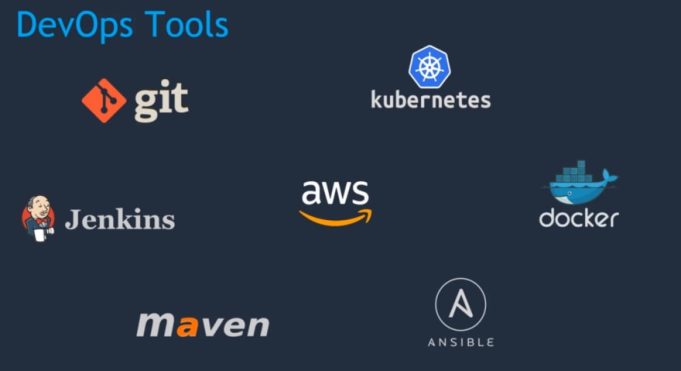Last Updated on March 7, 2024 by Ali Hamza
At a core level, DevOps is a methodology that accentuates collaboration between IT engineers and developers. The objective of DevOps is to eliminate the functional silos that earlier separated IT teams from development teams and made it problematic for them to communicate or reinforce each other’s efforts.
When an organization takes a DevOps approach, IT engineers and developers function closely together to determine what software is developed, how it’s deployed, and how troubles arising after deployment get resolved and inform the next development cycle.
DevOps is an ideology rather than a rigid set of tools and practices. However, a medley of technologies and procedures enables or enhances DevOps processes. They include methods such as continuous integration/continuous delivery (CI/CD), which means implementing and pushing out application updates quickly and continuously. They also extend to the usage of tools such as Git to conduct source control, making heavy use of cloud computing to build software environments that are more flexible and scalable. Automated configuration management tools are also utilized to fasten up software deployment and environment provisioning.
Why is DevOps important?
DevOps unlocks benefits for businesses and their customers by streamlining software delivery processes and removing the friction between development and IT teams.
This includes the following
- Application updates are quicker and less expensive to implement within a CI/CD pipeline. This lets organizations respond more quickly to changes in the market and provide cutting-edge features to users regularly.
- Automation tools that DevOps teams often use help to reduce costs while boosting the reusability and repeatability of configurations and environments, which benefits scaling businesses.
- DevOps practices enhance security by formalizing software delivery practices, which decreases the risk of oversights that lead to security vulnerabilities.
Engineers also get an advantage from DevOps. Because the DevOps notion strongly facilitates automation, working as a DevOps engineer means spending less time on boring work such as configuring a server manually or deploying an application release, and more time-consuming tasks that are more creative and authentic, such as planning updates to an application architecture or evaluating a new cloud service.
DevOps can also make the lives of engineers easier by making it quicker and simpler to rectify problems. If there is a bad application release, engineers can resolve it quickly by pushing an update out through their CI/CD pipeline.
By acquiring DevOps skills, engineers can increase their value to businesses while, at the same time, making themselves eligible for more enjoyable jobs
Types of DevOps certifications
When you set out to take a DevOps course or gain a DevOps certification, you’ll notice that they have three main classifications:
- Introductory courses and certifications – These courses majorly focus on DevOps basics.
- Advanced courses and certifications – These would be better for more sophisticated types of DevOps skills and tools. However, they do not focus on a single platform or company.
- Courses and certifications tied to practicing DevOps in a particular context. Examples of these types of courses include using a certain public cloud or a distinct container orchestration platform.
Your objectives will help you decide which type of certification or course to pursue
Online DevOps Courses
DevOps training courses online will enable you to learn DevOps and comprehend different aspects of software development, continuous integration, continuous delivery, build, testing, and deployment.
Here are some of the most widespread DevOps training courses online. These online courses are developed and taught by professionals across the globe.
Continuous Delivery & DevOps
Course details: This beginner-level DevOps course includes topics such as the skill and roles implicated in DevOps and how they contribute to a continuous delivery capability. The course is free, but for a fee, you can earn a certificate that lets you access all course materials, comprising graded assignments.
- This course is apt for beginners who are looking for a primer on DevOps.
- Prerequisites: Some familiarity with software development is beneficial but not necessary.
- Duration: Four weeks, nine hours
DevOps Culture and Mindset
Course details: This course teaches the underlying principles of DevOps, concentrating on culture and the DevOps mindset. You’ll understand how DevOps, which is based on lean principles, can help developers and the operations team in better collaboration. The course is free, but for a fee, you can again purchase a certificate that lets you access all course materials, including graded assignments.
- This course would be advantageous for engineers who know how to use technical tools but want a primer on the DevOps philosophy.
- Prerequisites: None, but the course infers some familiarity with technical tools and processes.
- Duration: Four weeks, 15 hours.
Docker Essentials
Course details: This course delivers an in-depth understanding of containers and Docker. You’ll develop and run multi-container applications using Docker Compose and discover how to manage Docker Swarm Clusters.
- This course would apply to IT students, professionals, and teachers; DevOps engineers and enthusiasts; system admins; software engineers; computer engineers; and software developers.
- Prerequisites: Standard knowledge of the Linux OS and Linux Command line.
- Duration: Approximately three hours
Microsoft Certified: DevOps Engineer Expert
Course details: This vast training program covers a variety of DevOps topics, comprising source control, continuous integration, security, and testing. The course focuses on Microsoft- and Azure-related technologies, but it also skims on core DevOps concepts that apply to any kind of environment. Online training is free, but the Microsoft Certified: DevOps Engineer Expert certification exam has a fee.
- The course applies to Developers and infrastructure administrators.
- Prerequisites: An individual must have a fundamental familiarity with both Microsoft Azure development and administration and have strong skills in one of these areas. Candidates should also be aware of Azure DevOps and GitHub.
- Duration: Approximately 60 hours
Conclusion
Many organizations are adopting the DevOps methodology today. This makes recruiting DevOps experts their top business priority. However, one of the biggest challenges faced by businesses on their DevOps journeys is finding and drawing in skilled talent. There is a huge DevOps skill set gap in the market. If you want to create a successful career in this field, this is a perfect time to learn DevOps and bridge the skill void.

















